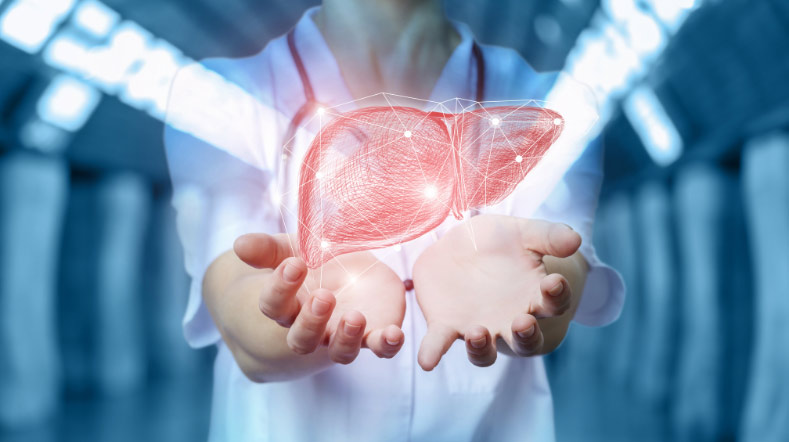
Food compounds in health promotion and disease prevention
Many food compounds affect our health, either directly or indirectly through the microbiome or via our immune system. Well-known examples of immune-interacting food compounds are food proteins that can induce food allergic reactions. But many more of the tens of thousands of food compounds exert health effects. We identify and characterise (immune) health effects of food compounds to support authorities and companies in the development and improvement of prevention, management and therapy of diseases.
The role of the immune system and food in health
Our immune system has a pivotal role in health maintenance. Between 15 and 20% of the people in the western world suffer from allergic and inflammatory diseases. Inflammatory processes also play a central role in many other disorders such as cardiovascular and neurological diseases, diabetes, pathologies in obesity and side effects of cancer immunotherapy.
The functioning of the immune system is driven by inflammatory balances. These balances depend on a complex interplay between intrinsic (host) and extrinsic (mostly chemical and microbial) factors. The total of all extrinsic factors (our exposome) is assumed to explain 70 to 80% of disease. Our food is a major source of exposure to extrinsic factors. That’s why we focus on identifying and understanding food compounds in (immune) health and disease.
More reliable allergen information on food labels
As of January 1, 2024, the Netherlands has implemented a new allergen policy, which makes the presence and absence of a warning for allergic consumers significantly more reliable.
Our research approach and themes
We develop and apply innovative data science-based methods:
- to identify and characterise effects of food compounds in (immune) health and disease
- to support diet-based health promotion and disease reduction
- to develop preventive and therapeutic products
We combine multiple information sources (literature, databases, clinical trial data, etc.), use advanced data analyses approaches, and develop statistical models/algorithms to analyse and predict outcomes of exposures.
Our research themes
Consumers may expect that food products are safe! However, certain vulnerable populations need to be more careful than others for specific products or ingredients. Food allergic reactions and the risks thereof are a major burden to the food allergic consumer, their families and the healthcare system. To avoid risk situations, all stakeholders in the food chain need to be aware and operate with great care for this vulnerable group of consumers. Therefore, allergenicity risks need to be assessed and managed and food products need to be properly labeled for intended and potential unintended allergenic substance presence. Our world-leading experts are dedicated to providing support to authorities and food business operators on food allergen risk assessment and management.
Threshold and food intake data-driven support
The TNO food allergen risk assessment program is recognized for its scientific substantiation, reliability and accuracy. For many years our work supports the Allergen Bureau VITAL® program. Our expertise, data and methods also played a key role in recommendations developed by the Ad hoc Joint FAO/WHO Expert Consultation on Risk Assessment of Food Allergens.
We solve allergen risk assessment and risk management questions for our customers as thrusted third party. We are using the latest science based on the world-wide most complete database with over 3500 threshold datapoints from individual food allergy patients and validated food intake databases specifically attuned to the application to food allergen risk assessment.
Safe food for allergic consumers; that’s our aim in supporting authorities and food and ingredient companies.
For more information, download our brochure (pdf).
New or modified proteins play a key role in innovation of food products and improving the sustainability of our food supply. New or modified protein-containing food products and ingredients may however lead to novel allergen risks. These may either results from cross reactivity with existing food allergens in individuals who are already allergic to related proteins or the development of new allergies (de novo allergenicity). TNO supports companies in the assessment of such risks based on our long-standing expertise and scientific network.
Research scheme and data-driven machine learning algorithm
We assess the allergenicity of new food proteins using a systematic research scheme addressing potential cross reactivity as well as the risk of de novo allergenicity using knowledge from related proteins and history of exposure. This approach is supplemented with an allergenicity prediction tool. This data-driven machine learning (random forest) algorithm is capable of predicting the allergenicity of proteins with a sensitivity, specificity and accuracy of all around 90%.
We support companies in preparing the allergenicity paragraph of novel food applications or expert statements on the allergenic safety of their products. Besides addressing the allergenicity of new proteins, we cover the allergenic risks of modified or residual known allergens. For the latter, we make use of our food allergen risk assessment and management program.
Safe food for allergic consumers; that’s what we support authorities and food and ingredient companies in.
For more information, download our brochure (pdf).
Nature has created hundreds of thousands of chemicals; tens of thousands of which are consumed through our diet. Many of these have potential beneficial properties (and all can be harmful if consumed in too large quantities). Discovery of beneficial and harmful compounds in our diet can provide new leads for diet-based health promotion and disease reduction or development of preventive and therapeutic products. At TNO, we develop and apply methods to identify and characterize yet undiscovered health-modulatory food compounds, with the aim to discover food-derived leads for health interventions.
Cohort data-driven health ingredient discovery
Most studies on the role of diet in (immune) health and diseases investigate the role of whole food products, product groups or selected (groups of) nutrients. The possible role of other health-modulatory food compounds among the thousands of compounds ingested daily will be missed using this approach, may bias such studies, or may disturb the interpretation of these.
To uncover the role of food compounds in health and disease, we combine data on the presence and levels of thousands of individual compounds in food from existing databases and develop strategies for linking this information with food intake data collected in cohort studies. This allows to map the intake of these compounds through food at individual chemical level. Subsequent combination with information on disease development, disease state, or disease course, allows to study the role of this wide spectrum of food compounds in health and disease.
TNO’s data science expertise, comprising of data warehousing, integration and analysis, such as mathematical modeling and machine learning, enables the complex data analyses needed for these integrated data sets.
With the discovery of beneficial and harmful compounds in our diet, we aim to provide authorities and companies with new leads for:
- diet-based health promotion and disease reduction
- development of preventive and therapeutic products
Collaboration with University Medical Center Utrecht
Led by Prof. Dr. Geert Houben, TNO and UMC Utrecht joined forces and closely collaborate in their research on food-borne factors in allergic and inflammatory diseases through a Research Chair at the Medical Faculty of the Utrecht University. Access to mutual expertise, data and cohorts, and methods and facilities opens unique opportunities for the development and application of our innovative data science-based methods.
Interested to participate in our research programme?
We welcome industrial partners interested in food-borne factors in health and disease to discover food-derived leads for health interventions. Our team is happy to discuss the possibilities to support you in addressing your specific areas of interest, product development needs and ways to collaborate.
Get inspired
TNO discovers new method to diagnose liver disease


TNO research lays foundation for more reliable allergen information on food labels


Public Private Partnership supports intestinal health in early life


Improving the health of mothers and newborns in Ghana



